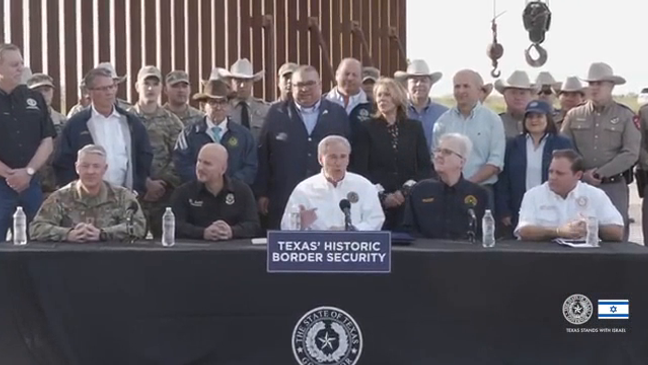Texas Governor Abbott signs controversial SB4 into law, empowering state to target, deport migrants

Texas Governor Greg Abbott has signed into law Senate Bill 4 (SB4), marking one of the most stringent state immigration measures in recent U.S. history.
This legislation empowers Texas law enforcement to apprehend and pursue the deportation of migrants suspected of unlawfully crossing the border from Mexico.

SB4, passed earlier this year by the Texas legislature, grants state authorities the ability to detain migrants on newly established state-level illegal entry charges. It further enables state judges to issue de facto deportation orders, though the practical implementation of this provision remains uncertain.
The law, set to take effect in March 2024, is poised to ignite legal and political conflicts with civil rights groups and potentially the Biden administration. Governor Abbott, defending the law, stated during the signing ceremony in Brownsville that the primary aim of SB4 is to curb the surge of illegal entries into Texas.
Critics, including Democratic lawmakers, the Mexican government, and advocacy groups such as the American Civil Liberties Union, have strongly opposed SB4. The White House spokesperson, Angelo Fernández Hernández, deemed it an extreme measure that could compromise community safety, emphasizing the federal government’s responsibility in immigration matters.
The Justice Department, likely to lead legal challenges against Texas, refrained from commenting on the matter. SB4 also represents Texas’ latest move to challenge President Biden on immigration, involving the transportation of migrants to Democratic-led cities and the deployment of National Guard units to deter border crossings.
Stephen Yale-Loehr, an immigration expert at Cornell University, characterized SB4 as unprecedented and more sweeping than Arizona’s SB 1070 from 2010. The Texas law criminalizes illegal immigration at the state level, with penalties ranging from misdemeanors to felonies.
SB4, notably, introduces misdemeanor charges for illegal entry and felony charges for reentry, carrying potential jail terms of up to 180 days or 2, 10, or 20 years, depending on the individual’s history. The law also prohibits arrests in specific locations, such as schools and places of worship, while allowing magistrates to order migrants to return to Mexico.
Critics fear SB4’s potential for racial profiling, intimidation in immigrant communities, and strain on state resources. Abbott and supporters argue that the law is necessary to deter illegal border crossings, addressing perceived shortcomings in the Biden administration’s response to the immigration crisis, which witnessed over 2 million apprehensions by U.S. Border Patrol agents in fiscal years 2022 and 2023.














